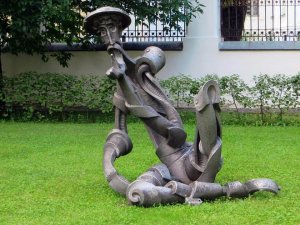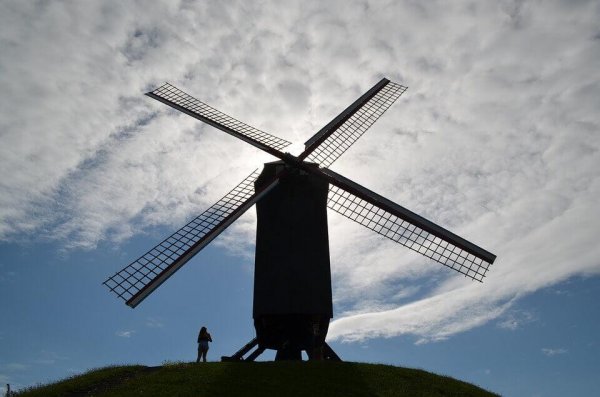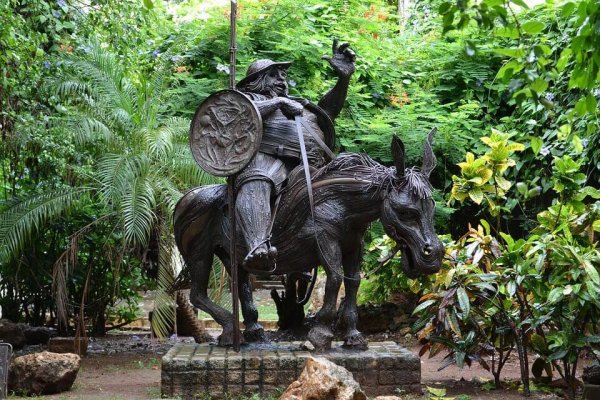The Don Quixote Effect

Don Quixote, the character created by Miguel de Cervantes, was a tragic warrior. His struggle was on the reality, rude and hostile, which he attempted to exchange. He wanted to exchange it for an ideal that he knew was unreachable. There are various metaphors aroused by this character. This has lead to an effect named after his adventures – The Don Quixote Effect.
The Don Quixote Effect occurs in different fields. There is the analogy of the man who fights against windmills and thinks they are giants. We can find this in war between countries. And we can also find it in our everyday lives. When we think that things are one way, but in reality they are in another, we fall into this effect. We end up charging head-first into the windmill.
“Don Quixote I am. I am a wandering knight by profession. My laws are: to right wrongs, to spread good, and to avoid evil. I have no interest in a comfortable life, ambition, or hypocrisy. I seek, for my own glory, the narrowest and most difficult path. Is this the stuff of the stupid or the ignorant?”
-Miguel de Cervantes Saavedra-
The Don Quixote Effect in war
One of the meanings the Don Quixote Effect has been given revolves around international relations. More concretely, this is related to war among countries. In history, we can find various examples, such as the US-Vietnam War. In these wars, the countries immerse themselves in wars they can’t win. Even though the countries can’t take control of the territory, they throw themselves into battle.
Unfortunately, the number of deaths these wars cause is not justifiable. This is regardless of the benefits they might gain from them. These wars might get started with the excuse of saving another country. They might say they are spreading democracy or overthrowing a dictator. Regardless, these are impossible ideals like those characteristic of Don Quixote. Let’s not forget the Iraq War. It was undertaken by the United States with the goal of implanting democracy in the Near East.

The Don Quixote effect as hysteresis
From the point of view of sociology, the Don Quixote Effect in to wars corresponds to “hysteresis”. Hysteresis results when the cause and the effect are delayed. That is to say, the cause that should create the change appears, but the change takes longer than expected. It might not even appear at all. Applied to sociology, history teaches us lessons about how events happen. It gives us experience. Nevertheless, as much as we may wait, the past does not always repeat itself. For example, when we move, we expect to adapt ourselves to a new lifestyle after a short while. Sometimes, this does not happen.
Being influenced by literature and history to the detriment of other sciences can lead you to have incorrect ideas about what might happen. Your brain uses cognitive biases and mental shortcuts (heuristics). These can make you trust your hopes more than rationality. This Don Quixote effect can be seen when you imagine things while in a fog. This fog is reinforced by divining old ghosts. In some way, they are those giants from the story. They never take real shape and end up dissipating away.
“The scientist looks for the common among the varied. He separates the essential from the superfluous. And this is what Sancho Panza does continuously. He seeks sensible answers to Don Quixote’s nonsense”.
-Jorge Wagensberg-
The Don Quixote effect in habitus
For Pierre Bourdieu, the Don Quixote effect is found within his theory on habitus. Habitus is a system through which we act, think, and feel in a certain way. Habitus is determined by our social class. This, in turn, is made up of interactions between cultural knowledge, education, and economic capital, among other factors.
The systems of habitus lead people to live in similar environments to have very similar lifestyles. For example, people from the same neighborhood tend to have similar taste in terms of books, movies, sports, art, etc. In the same way, the behavior of these persons will also be similar. But we can change our habits when we act in a different way from our typical behavior.

Therefore, habitus imposes limits on us – it tells us what is possible and what is impossible. Despite this, as we have said before, we can overcome these limits. Because what habitus tells us is impossible is not always so, strong changes in our environment can force a change in habitus. If, when faced with these changes, habitus changes favorably, it has undergone a good adjustment.
On the other hand, when this doesn’t happen, “habitus hysteresis” occurs. This is the Don Quixote Effect. When this happens, your thoughts, your feelings, and your actions are inappropriate in the current situation. This is due to the fact that habitus is in the past. It does not change even when changes happen in the environment. Luckily, you might have good friends like Sancho Panza who, although very different from you, can help you. Such friends can go along with you in your adventures and give you a different perspective. It might just be one that’s closer to reality.
This text is provided for informational purposes only and does not replace consultation with a professional. If in doubt, consult your specialist.








